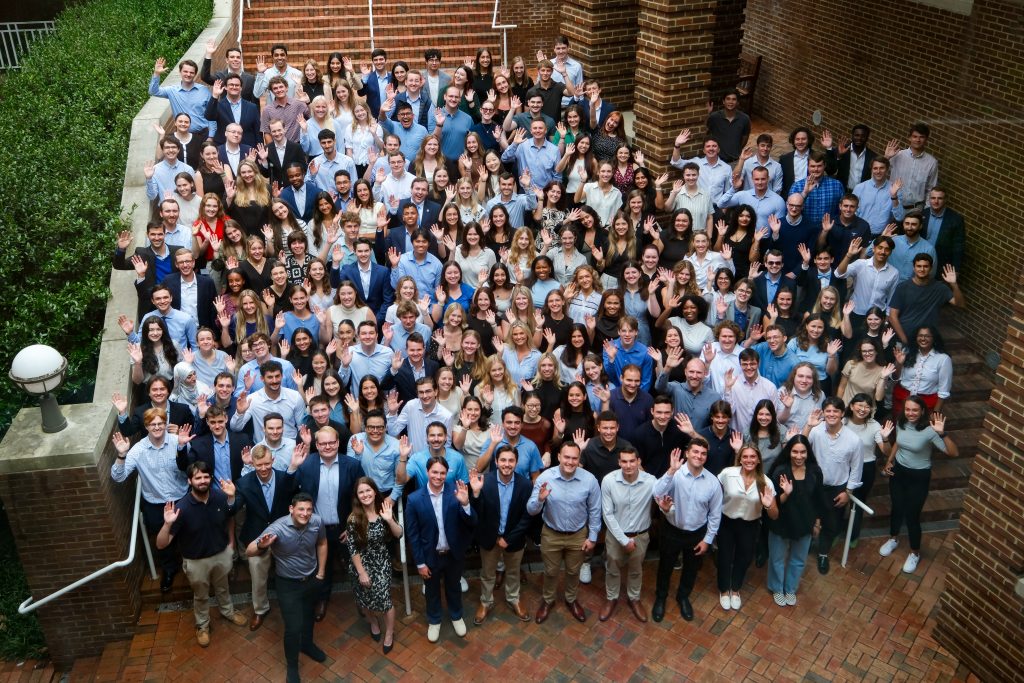
UNC School of Law has opened its doors to its most competitive incoming class yet. This fall, the class of 2028 brings together 183 talented individuals. The class was selected from a pool of 3,459 applicants, a 32% increase from last year’s 2,616 applicants. According to Ian McInnis, assistant dean for admissions at Carolina Law, “This year’s applicant pool as a whole was the most credentialed when it comes to numbers, and, to my knowledge, was the largest applicant pool that we’ve ever had.”
The jump in applications speaks to Carolina Law’s growing reputation as a top-tier institution, currently ranked 18th among all law schools by U.S. News & World Report. The surge also aligns with national trends, as law school applications nationwide were up 22% this year.
Driven by an acceptance rate of roughly 11%, the class of 2028 boasts impressive credentials that reflect this increased selectivity. The incoming students have a median GPA of 3.89 and median LSAT score of 168, both increases from the previous year’s 3.85 GPA and 167 LSAT score. The 75th percentile indicators are 3.97 GPA and 169 LSAT score, while the 25th percentile maintains strong numbers with a 3.77 GPA and 165 LSAT score.
The class reflects Carolina Law’s traditional geographic composition, with North Carolina residents making up 57.4% of incoming students and the remaining 42.6% coming from 29 other states plus Washington, D.C., representing 88 different colleges and universities. McInnis noted an interesting trend in the undergraduate backgrounds: outside of the University of North Carolina at Chapel Hill and NC State University, no other undergraduate institution has more than three alumni in this year’s class. “Typically, we see several undergraduate institutions with eight or nine students each,” he said. “This year, we have a more evenly distributed representation across institutions.”
The incoming students range in age from 19 to 46 years old, with a median age of 23, and the class is 50.8% female, 47% male and 2.2% non-binary. McInnis was able to provide scholarship funding to every incoming student this year through the strategic allocation of existing resources. As the law school continues to attract increasingly competitive candidates, philanthropic support for scholarships from the School’s alumni and donors remains essential for maintaining Carolina Law’s ability to enroll the nation’s top legal minds.



